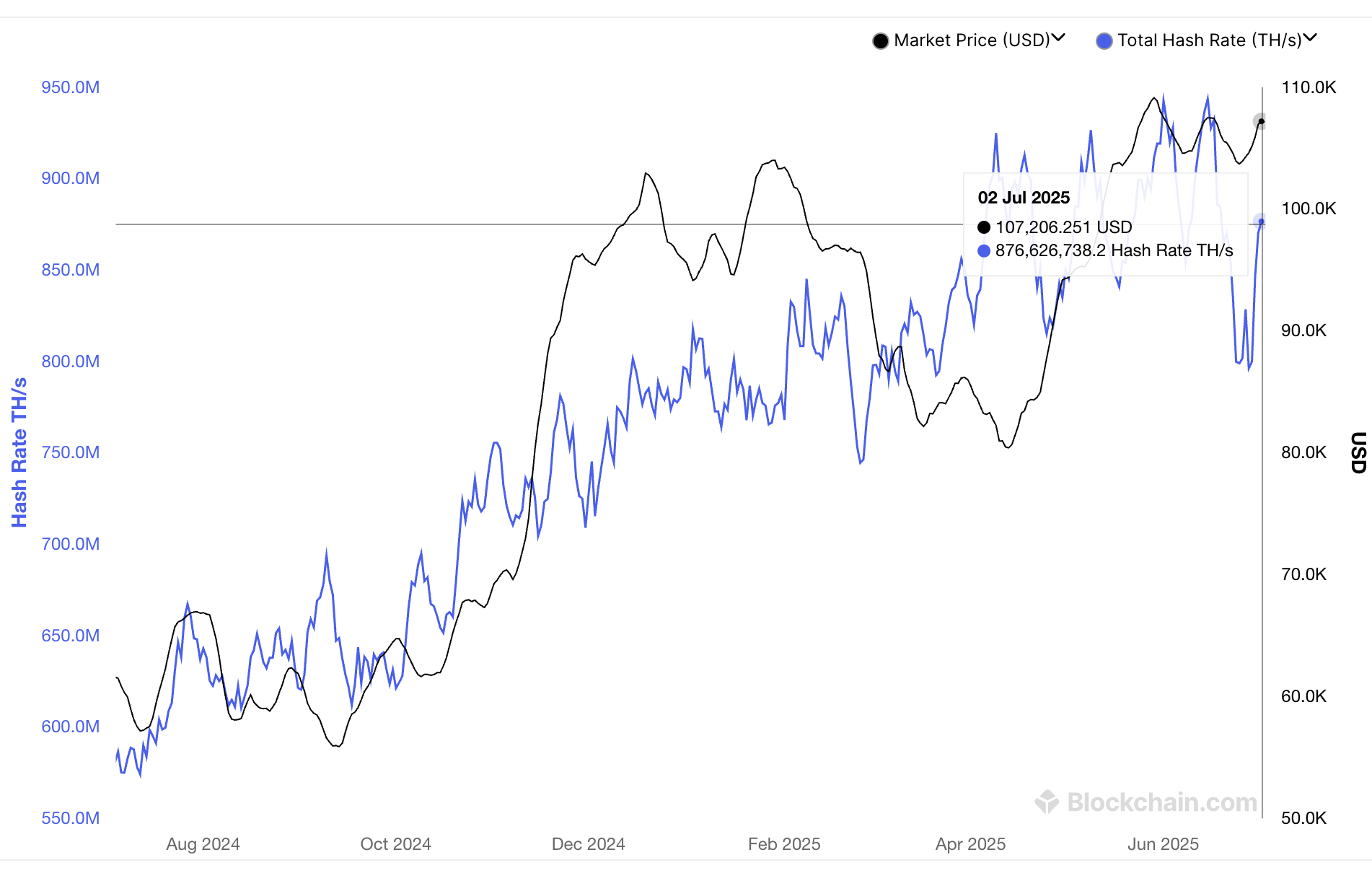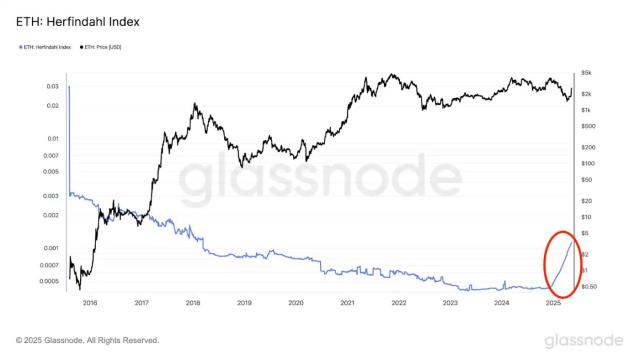Several Bitcoin mining companies reported a decrease in production in June compared to the previous month. This could be due to a decrease in the network's overall hash rate.
Nevertheless, the Bitcoin mining market is showing positive developments with the entry of new companies.
Bitcoin Mining Volume Decreases in June
As previously shared by Beincrypto, June 2025 was a turning point when the Bitcoin network's hash rate dropped to its lowest point in 8 months.
Heat waves affected the operation of mining farms. High temperatures reduced machine efficiency, forcing many miners to suspend or scale back operations, especially in regions like Texas and China. Additionally, the war in Iran appears to have contributed to the reduction in operations.
However, this does not indicate an overall decline. At the time of writing, the network hash rate shows signs of recovery.

Nevertheless, the decrease in hash rate seems to have impacted the performance of Bitcoin mining companies in June. According to published data, several industry companies experienced a slight decrease in production when costs increased by 34%.
Cango reported mining 450 BTC in June, a 7% decrease from May's 484.5 BTC. Similarly, MARA reported mining 713 BTC, a 25% decrease from May's 950 BTC. Cipher Mining mined only 160 BTC in June.
"The decrease was primarily due to reduced uptime from weather-related constraints and temporary deployment of legacy machines in Garden City while recovering from storm damage," MARA shared in its report.
Despite the decrease in mining production in June, the sector is showing positive signals with new companies entering.
Notably, Eskom, South Africa's state-owned power company, is considering using surplus electricity for Bitcoin mining. Meanwhile, the US-listed NIP Group has entered the Bitcoin mining field. Additionally, UK-based TWL Miner completed a $95 million Series B funding round.
This demonstrates the industry's resilience, driven by risk management strategies and investments in advanced cooling technologies.







